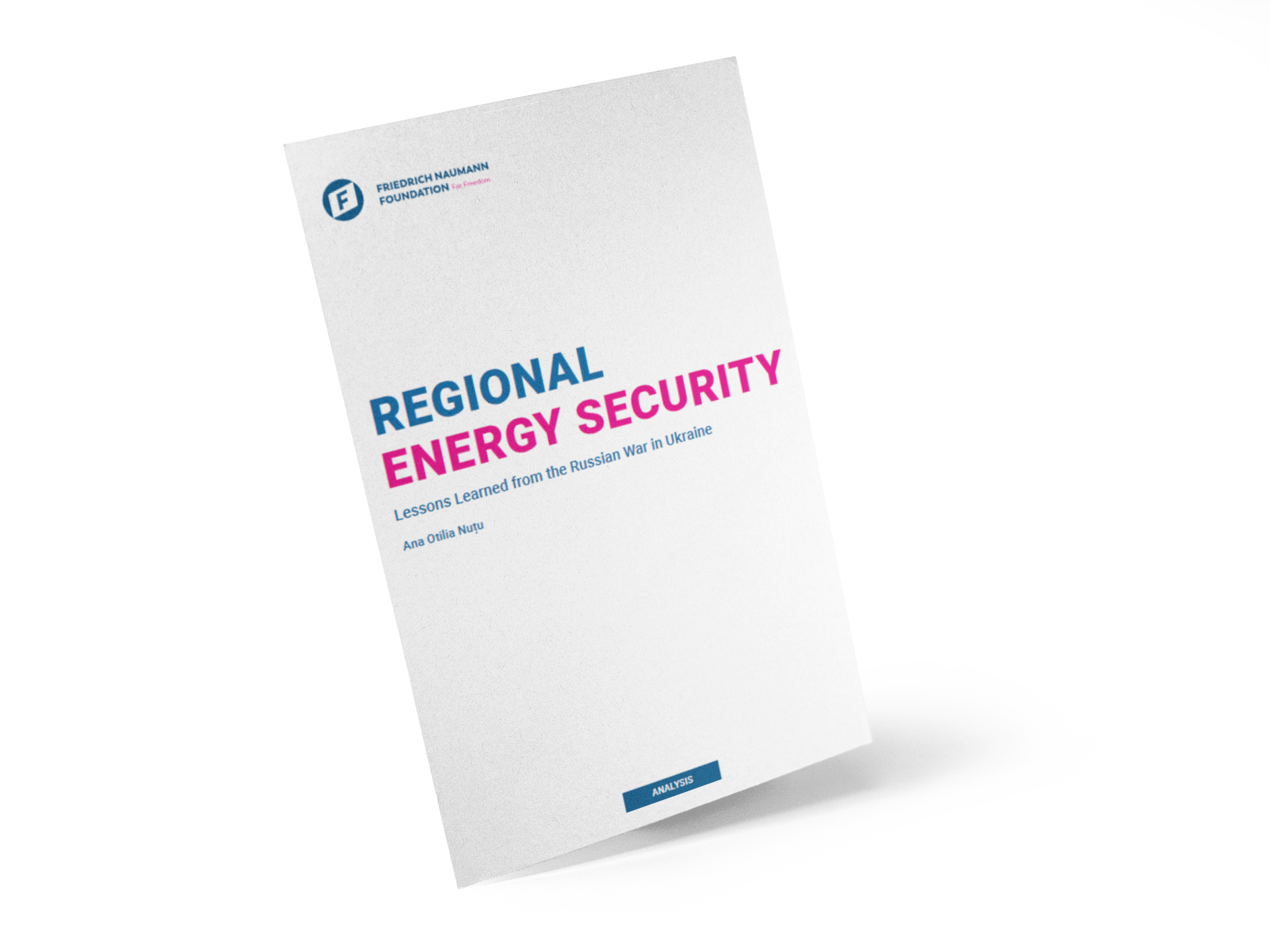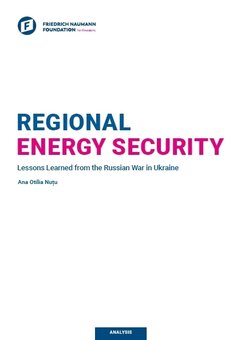Publication
Regional energy security - Lessons Learned from the Russian war in Ukraine

For the past decade, Europe had grown so comfortably accustomed to cheap, reliable gas from Russia that it willingly turned a blind eye to Gazprom not being exactly a commercial company, in the old-fashioned, liberal meaning of the term. The belief that Russia could somehow be tamed and integrated in the liberal Western order by doing business and entering mutually-beneficial economic deals was a widespread delusion which long guided the foreign policy of some Western countries, and in particular Germany. In retrospect, that belief proved naive and horribly misplaced. However, the past years’ experience of Russia’s war of aggression against Ukraine brings to the fore many more valuable lessons on the benefits, as well as limits, of liberalism when it comes to Europe’s energy security in the future and its relation to the wider world.
This paper follows the key developments in energy in Ukraine and Moldova in the past year in relationship with the EU, as a key factor in the unexpected resilience to Russia’s aggression, an element certainly less apparent than tanks and missiles, but which proved equally decisive. Since the beginning of the war, but most visibly since October 2022, energy has been a key weapon in Russia’s arsenal to demoralize Ukraine, on one hand, and break Western unity in the support of Ukraine, on the background of protests of consumers, on the other. Russia’s bet that energy shortage and high prices would ensure a relatively quick and painless victory over a divided West and a freezing Ukraine turned out a major disappointment for the Kremlin. On the contrary, it strengthened the internal societal cohesion in Ukraine even more and solidified unity between Ukraine and its allies.
The paper concludes that liberal, mutually benefitting cooperation works well when all actors share certain values and abide by international agreements and rules. However, not all of Europe’s partners are equally benevolent. In particular, among those in control of critical assets such as energy, technology or rare minerals, few share the same liberal values, while others see the economy as a means to exercise power and control. In the past year, Europe learned this lesson the hard way. Almost all European countries faced Russia’s continuous blackmail, market abuse and dishonest behavior in its gas contracts. This was a wake-up call that is critical for Europe not to make the same mistake in the future when it comes to deals with other authoritarian regimes where their dominant position could become leverage for political concessions.
Much can be adapted when it comes to diversifying energy supplies to bolster resilience. To safeguard liberal democracies and ensure prosperity and freedom, dependencies from authoritarian regimes must be reduced to the minimum and partnerships among liberal value partners fostered. Ending the war in Ukraine and strengthening the international world order challenged by authoritarian regimes requires a much bolder, principled approach. This means restoring Ukraine’s full territorial integrity and security guarantees.

